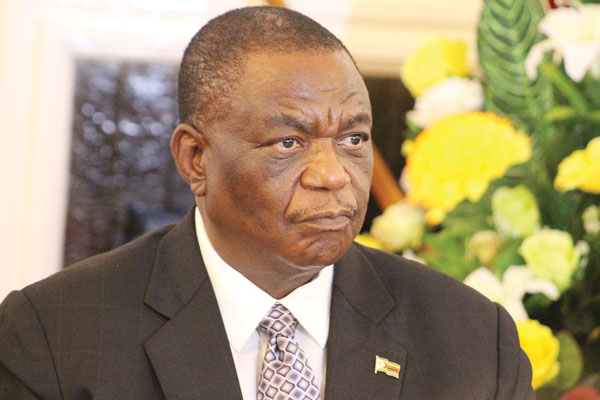
BY FIDELITY MHLANGA
GOVERNMENT is set to establish a new authority under the Health ministry to regulate the operations of medical aid societies, in a departure from an earlier Cabinet decision to place them under the stewardship of the Insurance and Pensions Commission (Ipec).
On February 23 Cabinet had approved the Insurance and Pensions Commission Bill, which said medical aid societies would be regulated by Ipec.
The Bill also said the National Social Security Authority (Nssa) would fall under the regulation of the insurance industry regulator.
The Bill is going through the usual law-making process before becoming statute.
Government says the amendment sought to ensure the maintenance of a fair, safe and stable insurance and pensions sector, which benefits and protects policy holders and pension fund members.
However, Cabinet said on Tuesday last week that it had reconsidered the position after a presentation made by Vice-President Constantino Chiwenga, which looked at the regulation of medical aid societies.
Chiwenga is also the minister of Health and Child Care.
- Chamisa under fire over US$120K donation
- Mavhunga puts DeMbare into Chibuku quarterfinals
- Pension funds bet on Cabora Bassa oilfields
- Councils defy govt fire tender directive
Keep Reading
“Cabinet noted that since medical aid societies are not for profit enterprises and represent members’ efforts to pool funds to assist in covering health bills and expenses, it is best international practice for such entities to be regulated by independent authorities with expertise to deal with the complex and peculiar aspects of the medical industry and should be under the oversight of the ministry of Health and Child Care,” Cabinet said.
“Cabinet resolved to establish the Medical Aid Societies Regulatory Authority under the ministry of Health and Child Care. Accordingly, Cabinet approved that medical aid be separated from general insurance, that is, exclusion of medical aid societies from the Insurance and Pensions Commission Bill,” the Cabinet minutes noted.
But insurance experts said it was important for medical aid societies to be placed under a special regulatory authority, but not to be regulated by government.
Martin Tarusenga, the general manager of Zimbabwe Pensions and Insurance Rights, told Standardbusiness that medical aid societies and medical insurance companies should either fall under an insurance regulator, or government should establish an exclusive regulator with competencies to handle complexities of the sector.
“It is instructive for Ipec to regulate medical aid societies in Zimbabwe,” Tarusenga said last week.
“Ipec regulation should, however, take into account the difference between a medical aid society and a medical company. It is right that their regulation under this Bill is being transferred to a regulator such as Ipec. It is Ipec’s regulatory approach that should radically be transformed, given Ipec’s poor track record as evidenced by the mess that the pensions and insurance sectors are in right now.”
He, however, said Ipec had to regulate the sector under the ministry of Health.
Tarusenga agreed with government that medical aid societies were a special sector that required separate regulation from insurance companies.
“It would be another insurance tragedy if Ipec regulation of medical aid ignored the ministry of Health as a key stakeholder. It is time that regulation of the insurance sectors, medical aid included, is broken up into complementary authorities consisting of a financial conduct authority and a prudential authority, staffed with demonstrably competent officers,” he said. “The conduct authority would serve to protect interest/concerns of the primary vulnerable stakeholders, while prudence will serve to translate such concerns into objective risk-based quantitative management techniques. Such regulatory approaches have long been in operation in progressive economies, thereby sustaining vibrant pensions and insurance sectors.”
Leading economist Victor Bhoroma said: “The ideal scenario is for all insurance sector players to be licensed, supervised and regulated by Ipec as the regulator has no conflict of interest. This promotes confidence and independence of regulatory affairs from political ideals.”
Announcing the Bill last month, Information minister Monica Mutsvangwa said: “The amendment Bill mainly seeks to ensure the maintenance of a fair, safe and stable insurance and pensions sector for the benefit and protection of policy holders and pension fund members. Nssa, medical aid societies and any other persons conducting insurance business will now be subject to regulation by the commission. The Insurance and Pensions Commission Bill will therefore strengthen the integrity of the insurance sector and enable it to play its role in supervising the sector”.











